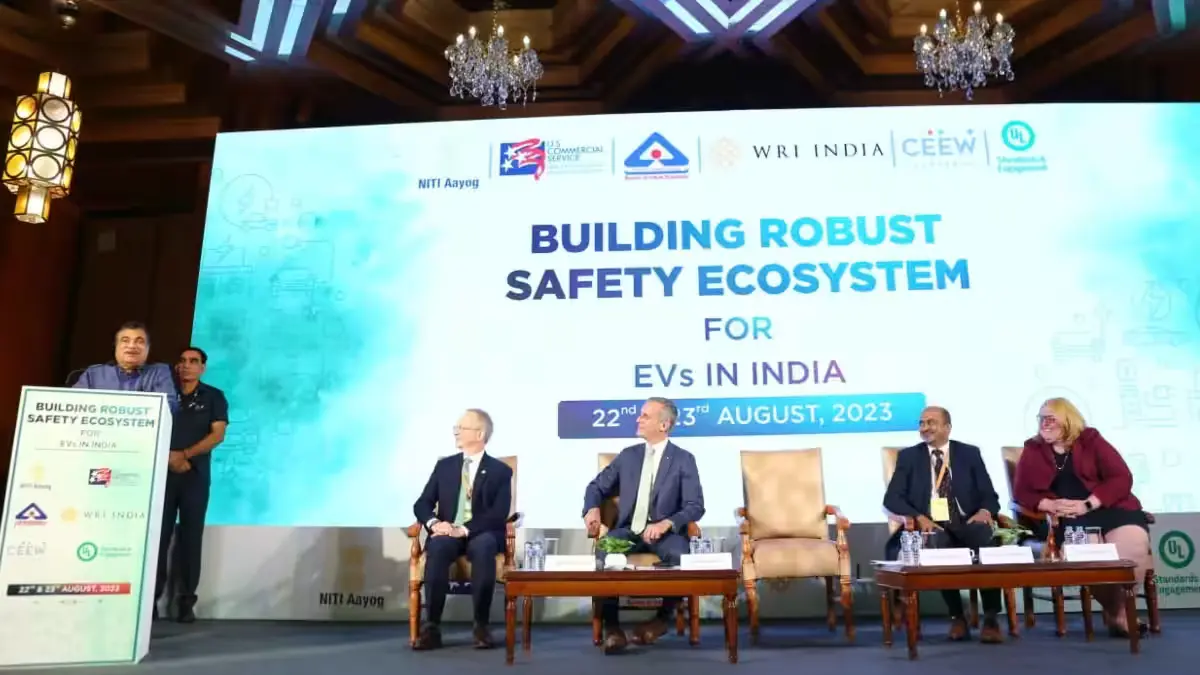
The symposium ‘Constructing a Resilient Electric Vehicle Robust Safety Ecosystem in India’ was held this week by UL Standards & Engagement. It was organized in partnership with the United States Commercial Service, the Bureau of Indian Standards, the World Resources Institute India, NITI Aayog, and the Council on Energy, Environment, and Water (CEEW). The main source of concern during the event was how to handle safety concerns for India’s developing electric vehicle sector.
With an increase in electric car sales, India’s EV industry is expected to grow significantly in the next years. However, recent EV-related fires have aroused worries, emphasizing the critical need for immediate safety measures.
Stakeholders presented strategies for creating a safer, more secure, and long-lasting electric vehicle ecosystem in India. Participants also reviewed the country’s EV sector’s problems, such as adapting electric vehicles to tropical temperatures, establishing supporting infrastructure, and assuring competency across the whole supply chain, from raw materials to maintenance.
Adopting global best practices and investing in research and development were emphasized as key components to effectively addressing these difficulties. The meeting also ensured a critical role in driving India toward a future of safe, secure, and ecologically responsible electric automobiles.
Also read: How Does India’s Hot Weather Impact EV Charging and Range?
During the two-day event, the importance of developing a strong quality foundation for EVs, building consumer confidence, and the need for a competent team were emphasized.
“The automotive industry is a vital contributor to our country’s economy,” said Nitin Gadkari, India’s Minister of Road Transport and Highways. With the rising adoption of electric vehicles in India, it is clear that we must take efforts to assist their development, such as charging infrastructure and hydrogen filling stations, in addition to increased EV expenditures.”
“Amidst this transformative era, where climate concerns are significant, we are not merely engaged in engineering vehicles; we are dedicated to making people’s lives better,” said Eric Garcetti, United States Ambassador to India. We’re working hard to develop standards and speed change at a time when there are big shifts owing to climate concerns.”
“In our ongoing journey, it’s critical to identify safety gaps,” said Sudhendu Sinha, Advisor – Infrastructure Connectivity – Transport & Electric Mobility, NITI Aayog.
We ensure consistent safety measures by creating and enforcing standards. We seek to develop an environment of innovation and progress with various Indian states aspiring to enhance manufacturing and mobility.”
“The collective expertise shared over the last few days moves India closer to a safe, reliable, and sustainable electric vehicle ecosystem for future generations,” said David Steel, Executive Director of UL Standards & Engagement. The potential of electric vehicles is closely related to their safety. Standards are essential for realizing that promise, allowing for greater global sustainability while also ensuring safety.”
“We need a collaborative approach among government, industry, and academia to create a safe and robust EV ecosystem in India,” said Madhav Pai, CEO of WRI India. There is a big chance to foster innovation and mainstream new battery chemistry, technology, and startups.”







